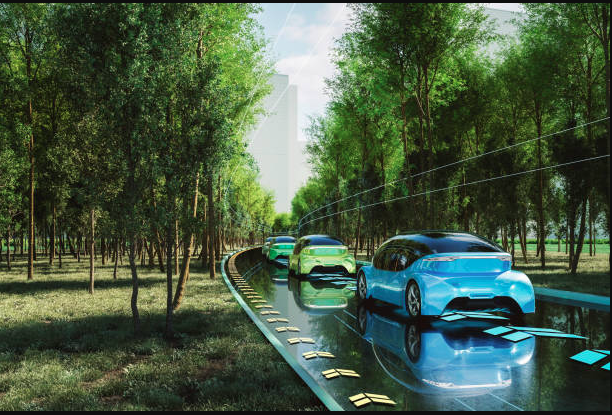The automotive industry is rapidly moving towards a future where autonomous vehicles (AVs) — cars that can drive themselves without human intervention — become commonplace. This technology promises to revolutionize transportation by improving safety, reducing traffic congestion, and increasing mobility for those unable to drive. This article delves into the development of autonomous vehicles, the benefits they offer, the challenges they face, and what lies ahead.
Understanding Autonomous Vehicles
Autonomous vehicles use a combination of sensors, cameras, radar, lidar, and sophisticated algorithms to navigate roads, recognize obstacles, and make real-time driving decisions. Levels of autonomy range from driver assistance features like adaptive cruise control to full self-driving capability where no human input is required. Companies like Waymo, Tesla, and Cruise are at the forefront of developing AV technologies, investing heavily in research and testing.
Potential Benefits of Autonomous Vehicles
One of the most significant benefits of autonomous vehicles is improved road safety. Human error is a leading cause of accidents, with factors like distraction, fatigue, and impaired driving contributing heavily. AVs, equipped with advanced sensors and instant reaction capabilities, have the potential to reduce crashes drastically. Autonomous vehicles can also enhance traffic efficiency by optimizing driving patterns, reducing stop-and-go traffic, and enabling smoother flow. This could lead to less congestion and lower emissions. Additionally, AVs can provide mobility to the elderly, disabled, or those unable to drive, promoting independence and access to essential services.
Economic and Environmental Impact
The widespread adoption of autonomous vehicles could reshape economies. It may disrupt industries such as trucking, taxi services, and insurance while creating new jobs in technology and data management. Environmentally, AVs could contribute to sustainability by enabling electric vehicle integration and optimizing routes to minimize fuel consumption.
Challenges to Overcome
Despite the promise, autonomous vehicles face several challenges. Technologically, perfecting the software to handle complex and unpredictable real-world situations remains difficult. Weather conditions, road construction, and unusual traffic scenarios pose significant hurdles. Legal and regulatory frameworks are still evolving to address liability, safety standards, and privacy concerns. Public trust and acceptance also require time and transparent communication about the technology’s capabilities and limitations. Cybersecurity is another critical concern, as AVs depend heavily on software and connectivity, making them potential targets for hacking.
Current State and Future Prospects
While fully autonomous vehicles are not yet mainstream, many modern cars already feature semi-autonomous capabilities like lane-keeping assistance and automated parking. Pilot programs and limited deployments are testing AVs in controlled environments such as urban centers and campuses. Continued advancements in AI, machine learning, and sensor technology are expected to accelerate development.
Experts predict that within the next decade, we may see widespread adoption of level 4 and 5 autonomous vehicles, transforming urban mobility and transportation logistics.
Conclusion
Autonomous vehicles represent a bold leap forward in automotive innovation, with the potential to save lives, enhance efficiency, and broaden mobility access. Although challenges remain, ongoing technological progress and regulatory efforts are steering us closer to a future where driverless cars become an integral part of daily life. As this revolution unfolds, it will be essential for stakeholders — from engineers and policymakers to consumers — to collaborate in creating safe, equitable, and sustainable transportation systems.
